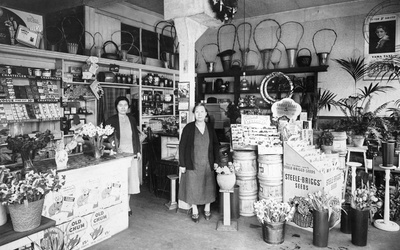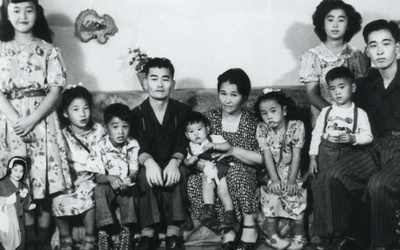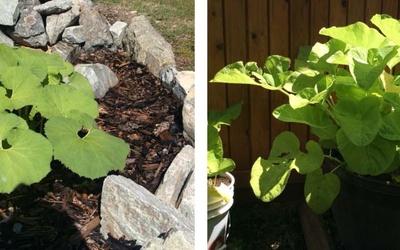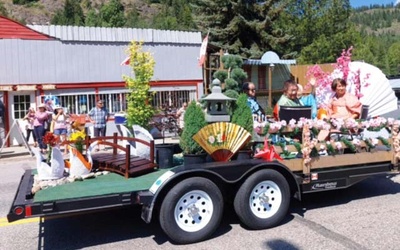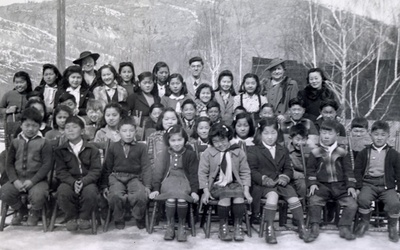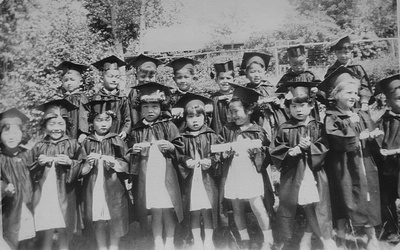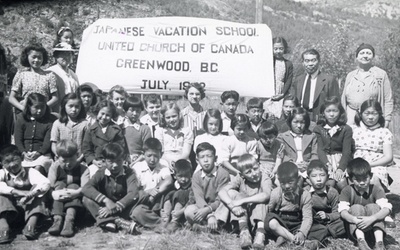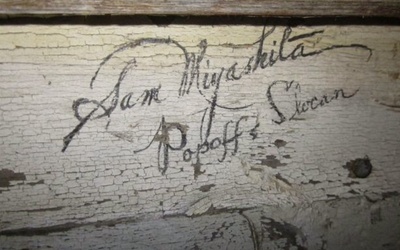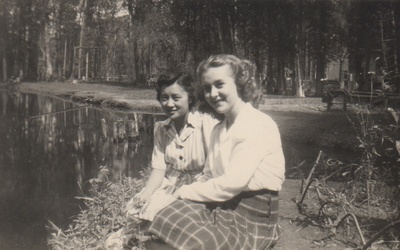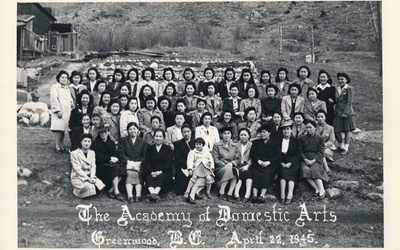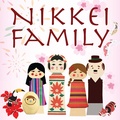
Chuck Tasaka
@CharlesHachiroChuck Tasaka é neto de Isaburo e Yorie Tasaka. O pai de Chuck foi o quarto de uma família de 19 filhos. Chuck nasceu em Midway, na Colúmbia Britânica, e cresceu em Greenwood, B.C., até terminar o ginásio. O Chuck cursou a University of B.C. e se formou em 1968. Depois de se aposentar em 2002, ele desenvolveu um interesse pela história dos nikkeis. Esta foto foi tirada por Andrew Tripp do Boundary Creek Times em Greenwood.
Atualizado em outubro de 2015
Stories from This Author
As ironias da história do internamento nipo-canadense: Parte 2 - Descobrindo a história nipo-canadense
2 de Junho de 2023 • Chuck Tasaka
Leia a Parte 1 >> Por muito tempo, não entendi a história nipo-canadense e por que aconteceu o internamento na Segunda Guerra Mundial. Mesmo quando me aposentei em 2002, ainda estava ocupado demais treinando para pesquisar essa história. Disse a mim mesmo que quando completasse 65 anos mergulharia profundamente neste projeto. Isso foi em 2010. Eu lia vorazmente, mas não havia muitos livros sobre a história nipo-canadense. Estudei história sino-canadense, das Primeiras Nações, dos nativos americanos e da nipo-americana. O …
As ironias da história do internamento nipo-canadense: Parte 1 - A vida da minha família em Greenwood
1 de Junho de 2023 • Chuck Tasaka
Já fui tão ingênuo e ignorante sobre a história nipo-canadense. Por muitos anos, deixei de me aprofundar para aprender sobre minha história pessoal de família, bem como sobre as maiores injustiças infligidas aos nipo-canadenses. Nasci em 1945 em Midway, Colúmbia Britânica, a apenas 14 quilômetros a oeste de Greenwood. Em 1946, minha família voltou para Greenwood e foi lá que cresci. Foi lá que fiquei detido em um teórico “campo de internamento” canadense para nipo-canadenses até 1º de abril de …
Comida caseira Nikkei canadense
4 de Setembro de 2022 • Chuck Tasaka
Anteriormente escrevi um artigo sobre comida Nikkei que era exclusivamente nipo-canadense : kan-ba-lando chow mein que evoluiu na cidade mineradora de carvão de Cumberland, BC, e Denbazuke do campo de internamento de New Denver. Fuki é um símbolo da imigração japonesa. No final de 1800, quando as pessoas pobres das aldeias rurais vieram para o Canadá ou para a América , por alguma razão trouxeram esta raiz insignificante que cresce nas encostas do Japão. Minha teoria é que talvez esses …
Comemoração do 80º aniversário de Greenwood
12 de Agosto de 2022 • Chuck Tasaka
Missão cumprida. O 80º aniversário do Concerto de Reunião de Internamento Nipo-Canadense de Greenwood, realizado em 16 de julho de 2022, foi um sucesso retumbante! Com pessoas apertando as mãos, se abraçando com abraços e grandes sorrisos por toda parte, havia aquele clima de camaradagem e amizade. A meta de financiamento de saúde e bem-estar para sobreviventes nipo-canadenses foi alcançada. Quão significativo foi este evento realizado no primeiro “campo” de internamento na Colúmbia Britânica ? Em primeiro lugar, havia cerca …
O papel da Igreja Unida em Greenwood
26 de Abril de 2021 • Chuck Tasaka
Escrevi extensivamente sobre a conexão dos Frades e Irmãs Franciscanas da Missão Católica Japonesa da Expiação com os nipo-canadenses em Steveston e na Powell Street Japantown de Vancouver. Claro, eles foram os responsáveis por trazer os nipo-canadenses, em sua maioria católicos, para o primeiro local de internamento de Greenwood em 1942. Os grupos da Igreja Unida deveriam ser enviados para campos de internamento em Kaslo, Tashme, New Denver e área de Slocan, no entanto, o governo decidiu enviar os superlotados …
Memórias do Anuário Escolar do Sagrado Coração - Parte 2
2 de Abril de 2021 • Chuck Tasaka
Leia a Parte 1 >> Anuário 1945-46 Uma mensagem do prefeito WE McArthur Sr.: A maioria de vocês é de origem japonesa e, embora sejam canadenses em todos os sentidos da palavra, tiveram que passar por dificuldades causadas pelos ódios que surgiram durante a guerra. Durante os últimos quatro anos, vocês resistiram a este fardo de uma forma que é muito digna de crédito. Como prefeito da cidade, descobri que vocês são realmente ótimas crianças e sempre estarei profundamente interessado …
Memórias do Anuário Escolar do Sagrado Coração - Parte 1
1 de Abril de 2021 • Chuck Tasaka
Em meu artigo anterior, escrevi que Greenwood se tornou o primeiro 'campo de internamento' na Colúmbia Britânica, graças principalmente ao esforço colaborativo do então prefeito WE McArthur Sr. e do frade franciscano Padre Benedict Quigley para trazer principalmente nipo-canadenses católicos e seus amigos e parentes para Greenwood em 1942. As Irmãs Franciscanas estabeleceram a Escola do Sagrado Coração quando os governos federal e provincial debatiam quem era o responsável pelo financiamento da educação. O governo de BC foi um “não” …
Mistério 'Graffiti' revelado
24 de Dezembro de 2019 • Chuck Tasaka
O ex-editor do Nelson Star , Greg Nesteroff, em 21 de janeiro de 2015, escreveu um artigo sobre nomes de nipo-canadenses arranhados na parede do antigo 'Slocan Hall' ou Legion/Oddfellows Hall. Este edifício estava em reforma para ampliar a cozinha. Enquanto os empreiteiros retiravam o asfalto do prédio, eles puderam ver os nomes dos nipo-canadenses que provavelmente eram adolescentes durante os anos de internamento, por volta de 1944 ou 1945. Apenas alguns nomes eram legíveis. O mais claro era muito …
Heróis desconhecidos do internamento nipo-canadense
7 de Maio de 2019 • Chuck Tasaka
No Canadá atual, os nikkeis de destaque de que ouvimos falar com tanta frequência são pessoas como David Suzuki, Joy Kogawa, Muriel Kitagawa, Thomas Shoyama, Santa Ono, Raymond Moriyama, Art Miki, Mary e Tosh Kitagawa, e atletas como Paul Kariya (hóquei ), Nathan Hirayama (Rugby 7), Vicky Sunohara (hóquei olímpico), o esquiador olímpico especial Brian McKeever e o time de beisebol Hall of Fame Vancouver Asahi (1914-1941). De 1942 a 1949, durante a deslocalização forçada da costa da Colúmbia Britânica, …
MAINICHI GAMAN: vassoura, esfregão e avental
13 de Dezembro de 2018 • Chuck Tasaka
Durante muitos séculos, as mulheres lutaram pela igualdade de género, especialmente no fórum político. Já no final de 1800, as mulheres no Canadá lutaram para ganhar força para o “Direito ao Voto”. A maioria dos políticos insistia em que o lugar das mulheres deveria ser em casa, ter filhos, criá-los, cozinhar para os maridos e manter a casa arrumada. No entanto, as mulheres no Canadá poderiam concorrer a cargos políticos. Uma mulher que liderou este movimento foi Nellie McClung. Ela …

